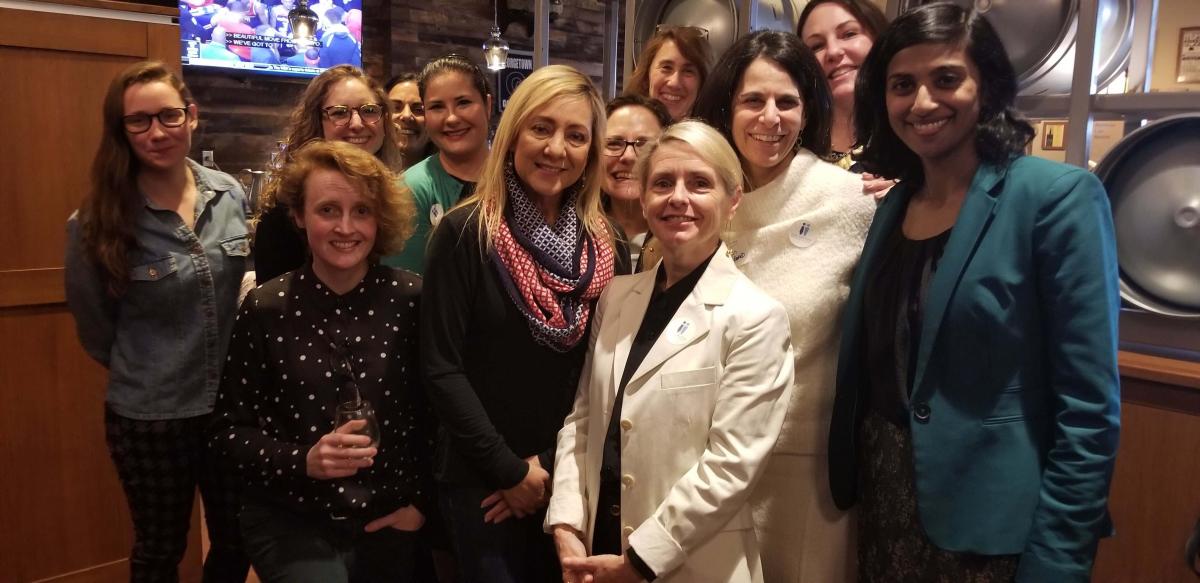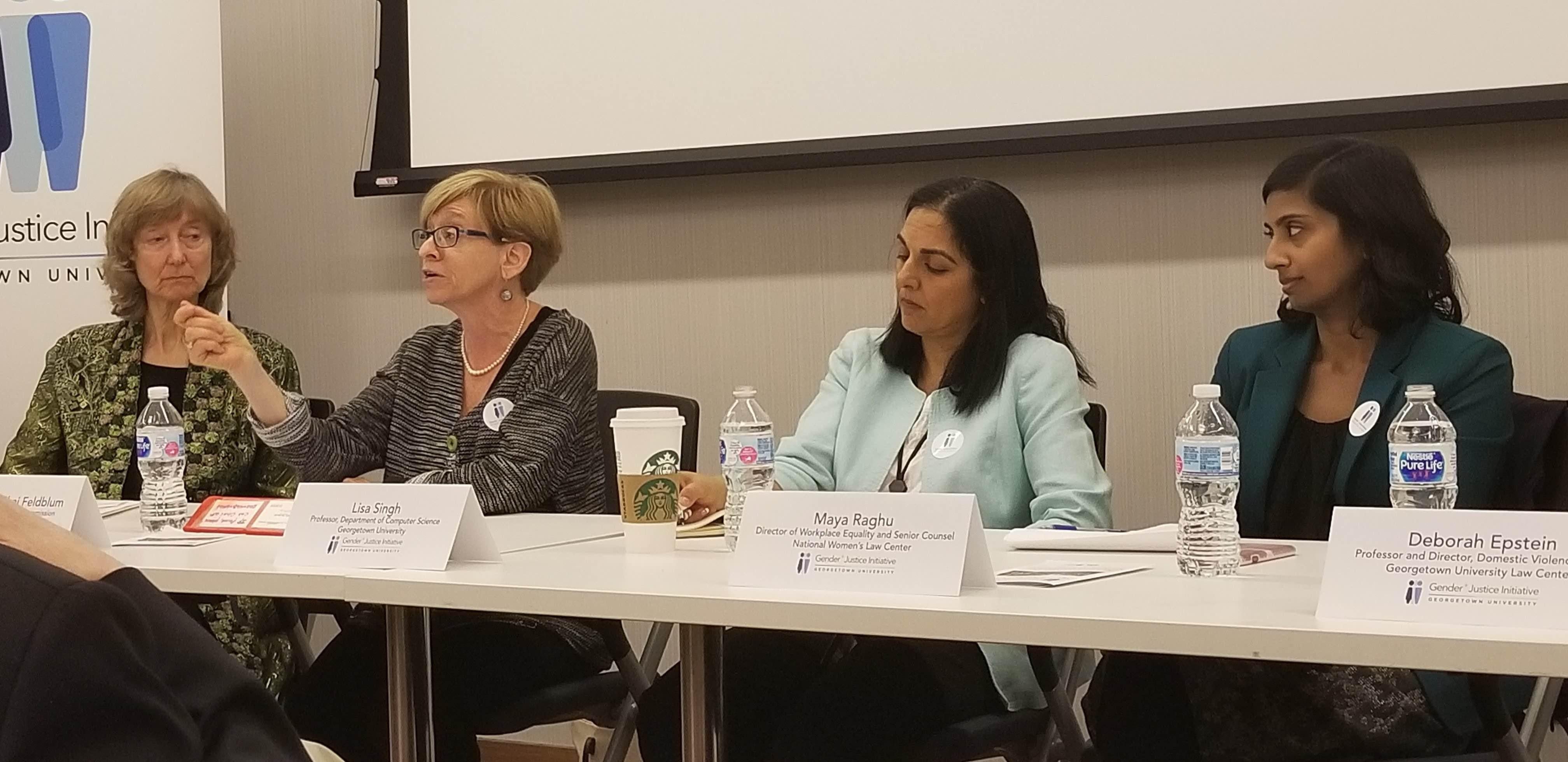What Is Next For The #MeToo Movement?
On April 19th, 2018, the Gender+ Justice Initiative hosted a roundtable on the #MeToo movement. “The #MeToo Movement – Why Now Again? What Next?” panel, moderated by Georgetown’s Professor Deborah Tannen, reflected on why the #MeToo movement found momentum, what change it produced, and where it may go next. The invited panelists each gave their perspectives on how harassment is being discussed and how the movement has changed the landscape surrounding sexual violence.
First, Chai Feldblum, Commissioner of the Equal Employment Opportunity Commission, discussed the findings of the Select Task Force on the Study of Harassment in the Workplace. She emphasized the importance of data and unpacked how women answer surveys. In outlining how the task force gauged women’s experiences, she stressed the importance of rigorous intervention in leadership and policy and that training should be considered the capstone of those efforts. “You need to change behavior, not attitudes,” Feldblum said, noting how action precedes changes of heart.

Professor Deborah Epstein, Director of Georgetown Law’s Domestic Violence Clinic, then discussed how women’s stories are often considered unreliable due to the public’s confirmation bias. She noted that women often stay in their positions and tolerate abuse because of their fears of financial insecurity and professional retribution. She argued that because many men cannot see themselves doing that, they cannot believe that women would have those concerns.
Epstein then relayed how women trying to receive financial retribution affects story plausibility in the public eye, even when women are legally entitled to that aid. “We have to believe women the same way we believe men,” Epstein said, “even when they’re telling [these] stories about male perpetrators.”
“This is a systemic issue,” Maya Raghu opened. The Director of Workplace Equality for the National Women’s Law Center, Raghu discussed how there has been a large increase in people seeking legal assistance for these incidents since the #MeToo movement started. She noted that many of these women are reporting cases well past the statutory limit for adjudication because, more importantly, they want people to hear their stories.
Raghu also pointed out how sexual harassment is pervasive across all fields of employment and noted the difficult situation of service industry employees, who often encounter harassment from customers or clients.
Ending the presentations, Professor Lisa Singh of Georgetown’s Department of Computer Science reviewed her collection of data from Twitter on what people were saying under the #MeToo hashtag. Documenting how Twitter trends have actuated real social change from the Arab Spring, Giving Tuesday, and Black Lives Matter, Singh noted how #MeToo is a form of cultural change that is framed through experience sharing.
With generally over 20,000 tweets every day, #MeToo is used most frequently for sharing personal experiences about sexual assault in order to change behavior. Singh noted that “social media is a great tool for maintaining momentum until change occurs,” so if the movement wants to maintain momentum, activists will need to continue producing change.
After the panelists finished their presentations, Prof. Tannen opened up the talk for questions from the audience. One person asked about the efficacy of different training, and Feldblum noted that oftentimes employers don’t address whether the training is effective because they might be legally liable if they discover their training is ineffective.
Another audience member asked whether the #MeToo movement is located on the coasts or whether there is truly geographic diversity in its participants. Singh noted that while the data still needs to be addressed, this seems like it is a genuine national movement.
The final question from the audience asked what gives the panel hope in their work. The panelists finished the talk by discussing how harassment survivors are realizing they no longer need to live with this treatment and that they can take action by sharing their stories.
Afterward, the audience was abuzz with appreciation at how the talk went. Professor Naomi Mezey in particular noted, “The #MeToo Roundtable offered critical reflection and insight on the origins and impact of a movement that is too often subject to polarizing soundbites.”

